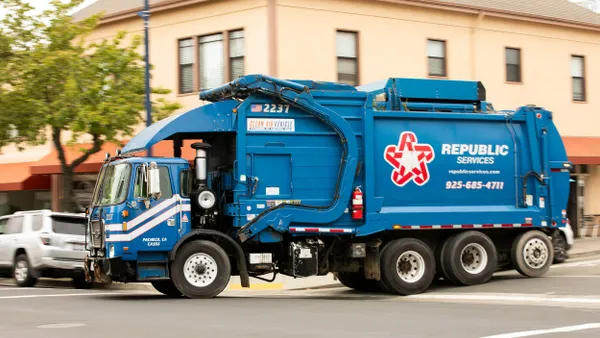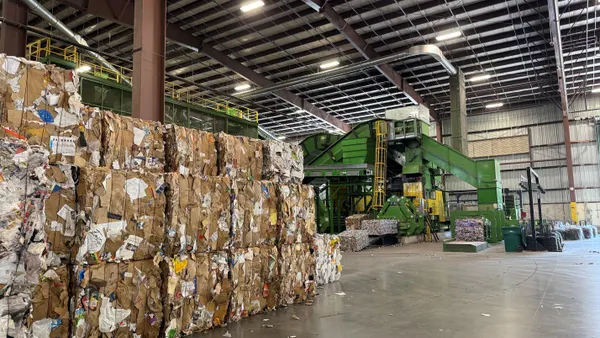Dive Brief:
- A new report called "Clearing the Air" from Transform Don't Trash NYC (TDT) — a coalition of labor and environmental advocates — highlights the effects of air pollution on workers and residents near private transfer stations in New York. TDT says this further proves the need for a commercial waste franchising system and emphasizes the importance of clean fuel requirements in such a system.
- Readings of fine particulate matter (PM) were collected in three areas with high transfer station traffic in the Bronx and Brooklyn and compared to stationary monitors operated by the New York State Department of Environmental Conservation. PM readings were between two to seven times higher than average in the South Bronx and up to five times higher than average in North Brooklyn.
- Readings taken by private waste workers during a full shift found PM concentrations in their cabs were also up to seven times higher than ambient levels.
Dive Insight:
As noted in the report, a local law already requires haulers to upgrade their trucks to meet 2007 EPA emission standards by 2020. Yet this doesn't encourage a change to cleaner fuels such as compressed natural gas (CNG), as is required by San Jose's franchise agreement and part of the pending agreement in Los Angeles. TDT recommends making this a requirement for New York's franchise agreement as well as finding ways to incentivize the use of the Department of Sanitation's (DSNY) rail and marine transfer stations.
These findings on truck traffic and air quality come as the first official meeting on the city's proposed commercial waste franchise system is held today. A revised version of Intro 495, a City Council bill that seeks to reduce private transfer station usage in some of these affected neighborhoods, was also recently released.
DSNY is still using some of the private transfer stations in question until all of its marine stations are complete and air quality in neighborhoods such as the South Bronx is also affected by many factors aside from commercial waste vehicles. For example, the Hunts Point neighborhood is home to three of the country's largest wholesale markets and many other businesses which generate their own truck traffic. Yet the role of commercial waste vehicles in this situation is undeniable and likely to be an ongoing factor in the franchising discussions to come.











